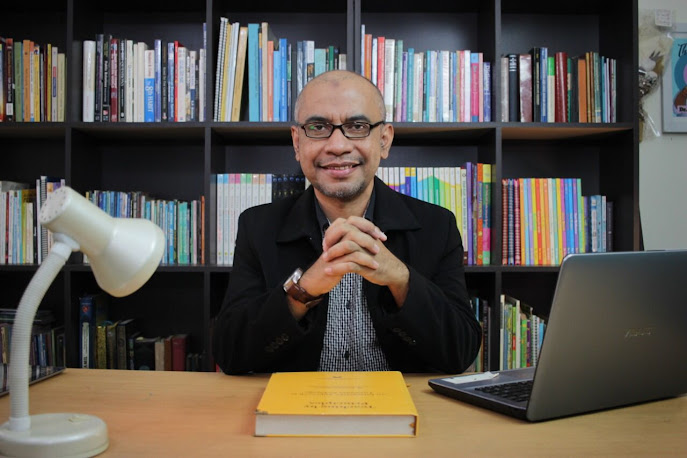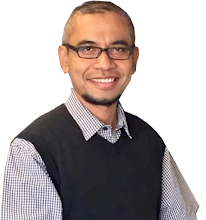As a part of public accountability and quality control, the government through the Ministry of Culture and Primary and Secondary Education (Kemenbuddikdasmen) has been conducting Teacher Competency Test (UKG) to nearly 3 million teachers across Indonesia since 2013. This program is not only intended as a means of mapping the quality and competence of teachers nationally, but will also be a basis for the government to formulate a training plan for quality improvement and professional development of teachers nationwide in the future.
As stated by the Director General of Teachers and Education Personnel of the Ministry of Education and Culture Sumarna Surapranata, the UKG will be routinely done every year. Although there is no term 'pass and faill, the government is targeting a constant growth in the teachers’ scores from year to year. This year, for example, of 60-100 questions prepared and performed for 120 minutes, the government is targeting the mean score of teachers’ knowledge competency is 5.5. It is expected to increase by 6.5 next year. And at the end of 2019, it is targetted to be 8.0 (Kompas, 11/3/2015).
In one side, the government's efforts to conduct the competency test needs to be highly appreciated. The government should indeed ensure that our teachers’ quality is well monitored and their competency is continously developed. As a nation we must be very concerned with the quality of our educators as the quality of the teachers have a direct impact on improving the quality of our national education.
This is especially a case if it is linked with the teacher certification program that has spent a large amount of our national budget. The improvement and control of the quality of teachers become mandatory. The UKG is then important and relevant, so that the certification which has used up the state budget for almost 80 trillion rupiah every year had a significant impact on increasing the professionalism of the educators. In short, a certified teacher is a professional teacher. A professional teacher is a qualified teacher. The qualified teacher is the main player in our efforts to increase the quality of national education with its all complexed problem.
But on the other hand, it is important to look more closely at the technical implementation of this UKG. It needs to be evaluated whether the test is valid and trusted as a means of measuring the competence of a teacher. Could this test really measure what is supposed to measure (validity). This question is important, because an unreliable test will result in incorrect data. The inaccurate data certainly can not be the basis for making important decisions, such as teacher training programs.
The most crucial points of the current model of the UKG is in the aspect of the test models used. As explained in the manual published by Kemendibud, the UKG will measure and map the competence of teachers in their field of study (subject matter) and teaching (pedagogic). The test is conducted in the form of multiple choice questions (60-100 for 120 minutes). From the perspective of test validity, this kind of test can not fully answer the initial objectives of the UKG, to obtain information and map the pedagogical competence and professional of the teachers.
Not only because the test does not asssess the four aspects of teachers’ competency as mandated by the Law on teachers (the UKG does not assess the social competence and personal competence of the teachers), this test also leaves a lot of questions related to its realibility to accurately depict the competence of teachers. Teachers’ professional competence are in fact a very complex notion. From the aspect of pedagogic competence, for example, it is questionable how the test is able to obtain valid information about the ability of the teachers in planning the lesson, effectively starting their classes, and managing the class. Can the test assess their competency in terms of creating a live dynamic and conducive class, or in explaining a complex material in order to be easily understood by students. How the multiple choice questions can provide accurate information about the ability of teachers to ask, answer questions, to anticipate unexpected things in the classroom, or how the teachers motivate the students.
Even if the current UKG has tested things such details above, how to ensure that the cognitive knowledge of teachers in the answer sheet is in line with what he is doing in the classroom. What often happens is that a person can understand a concept in the level of theory, but he or she may not practice what s/he knows in the classroom. Thus, a teacher with a high score in the UKG may not necessarily mean that he or she is an eminent pedagogue in the field. Because the world of practices usually have their own space and art. This is why the validity of the UKG test result does really matter.
Not to mention potential technical problems which may hinder particular goup of teachers to perform well during the test. As majority of teachers take the computer-based UKG, some senior teachers who are not too familiar with the use of IT devices are likely to feel uncomfortable with this kind of test models. They are not troubled by the content of the test, but more on the technical aspects of how to operate the computer and the device. As a result, their test results can be worse than their actual ability. In the field, they are infact senior teachers with may be more with 20 years of eperience. They may have sucesfully educated and inspired thousands of their pupils before.
Considering some issues as mentioned before, it is urgent and necessary to find alternative models of assessments with a more holistic instrument in assessing teachers’ competence in the future time. This is certainly not an easy job given the broad scope and complexity of teachers’ competence as discussed above. Even in some developed countries like America which has carried out this kind of test for a long time, many reports indicate that the teacher competency test failed to provide the necessary information as a basis to help teachers grow and develop their competencies. Therefore most teachers in America just consider the test as 'a joke', because they do not feel a direct impact of the test on improving their performance as teachers (Lucy Steiner, 2010).
Hence my point is how we can keep thinking of a more appropriate way to assess our teachers’ competency and minimise potential bias due to inaccuracies in test instruments. We can use the current model as a starting point to develop a more holistic examination. In addition to assessing teachers’ mastery on their subject matter thorugh existing multiple choice, consideration may also be given to the use of other assessment instruments. Referring to the teacher assessment framework in some other countries like in the UK, Mexico, Canda and Singapore, assessments through classroom observation, self-assessment, or teachers’ portfolio are amongst other instruments that could be developed.
Equally important is how to involve the principal, school superintendent, or even the public in assessing the performance of these teachers. Especially for their social competence and personality that can only be assessed by asking or observing directly into the field of how teachers behave and act in the school and surrounding community. Furthermore, feedback from the 'relevant customers' of teachers like parents and students also need to be considered. Consequently, the assessment process can be no longer fully implemented by the central government, as is the case now. Decentralization of the assessment process is important to think about.
With such a holistic assessment tools, we can hope to get a more reliable picture related to the competence of our teachers. It will result in more accurate data to be used by the government as the basis of teachers’ career development and teacher training and professional development programs in the future. Otherwise, we are concerned that this UKG is only going to be another 'joke' among teachers, or simply be a new land for new projects in Kemendikdasmen, as feared by some people.
*The writer is teaching at the Faculty of Education of Riau University. He has just completed his doctoral degree from Monash University in Australia.
(This article was initially written for The Jakarta Post)



1 comments:
commentssuper, sir..
Reply